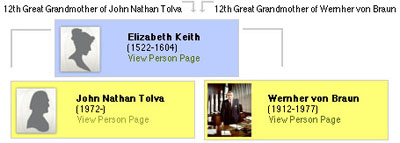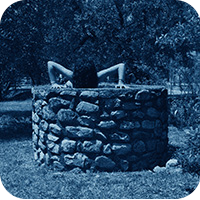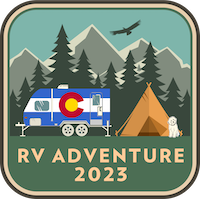The ultimate social network
It is said that researching family history is second only to scouring the web for porn in popularity. I’m not sure if that’s true, but I can see how it might be so. If ever there was a medium perfectly suited to establishing lineage and contact with unknown family it is the Internet.
I’ve always had a simmering interest in genealogy, but the sorry state of family tree applications never got me very excited. These were almost always legacy beasts that could import the archaic GEDCOM standard file format and do little more. Where these apps really failed was in areas of collaboration and visualization. What good is a family tree if you are the only person who can work on it? And, much thornier, how do you slice and dice such a fractal dataset so that it is actually useful?
In recent years Ancestry.com has stepped in and taken care of much of the problem. Ancestry is run by the Church of Latter Day Saints (the Mormons) as a commercial offshoot of their ginormous genealogical holdings. The site is strictly secular though and offers an amazing array of backend research services that turns one’s offline family tree into a portal to dozens of historical record repositories. Just upload (or enter) what you know and the site begins searching census records, immigration manifests, military archives — and the best of all, other people’s trees that link up with yours back in the mists of time. Depending on where you’re from you can flesh out your family rather easily. Just a few nights ago I actually got bored after taking my mom’s mom’s line back so far through the UK that my line proceeded through a reverse Norman invasion back to France in the 11th century. Goodness knows how far back the recorded lineage goes.
Perhaps the most entertaining feature of Ancestry.com is the “Find Famous Relatives” function, six-degrees of separation on steroids. Basically if you have a pretty fleshed-out tree (and especially if any branches of it stretch back through the UK), Ancestry returns a bewildering collection of well-known relatives. For instance, I am the seventh cousin twice removed from William Faulker. This means ol’ Will and I share the same great-great-great-great-great-great-grandparent, though this person is two generations off from me. (Twice removed is what you are to the first cousins of your grandparents.) Not exactly thrilling. Ah, but there is thrill. I am the twelfth direct cousin of Werner Von Braun. This means we share the same great-grandmother12. Let’s set aside that Herr Von Braun developed the V2 rocket for the Nazis and instead focus on his role as the father of the American space program, OK?

Even before I found Ancestry.com the web has been an inadvertent boon to family-finding. All you really have to do is get your name indexed by Google and it is off to the races. In the last six years I’ve been contacted by dozens of people with similar surnames or lineages who think they might be family. There’s Roberto di Tolve, a citizen and resident of Holland who was born in Barile, Italy and who is now a close family friend. Roberto travelled to Barile with my family and I in 2003. He’ll be back with us this July. There’s Stephanie Saville of the Paternoster line who traces her line to the famous winemakers of Barile. Most recently there’s Mike Botte who lives in NY and who grew up in Barile. (My great-grandmother is a Botte.) This may be the closest to true relation that’s been established simply from an e-mail. Mike’s cousin is the current mayor of Barile, who I will meet in July; so we’ll know soon. Much more on Mike and his extraordinary brother John in a future post.
So, ok, you get it. Online genealogy can be fun. But I am already seeing the underside of it. For one, it really does make you think hard about what family is. Genealogy is really about bloodlines, not family in the broader sense which includes step-relatives, foster parents, and illegitimacy. It charts gene propagation not family structure. In this way it is conceptually similar to The Genographic Project.
Also, you do come across people who treat genealogy with the same trainspotting zeal as online discographers. For example, finding a limited pressing of a Rolling Stones LP with a typo in the liner notes makes it more valuable; finding a misspelling on an emigration document might be a useful clue — but it might also be (and usually is) merely a massive pain in the ass. There’s a kind of genealogy buff I’ve come across that doesn’t really get this distinction.
One response to “The ultimate social network”
Hi, I’m John Tolva!
Mission Elapsed Time: 20:00:21:06:42:40
Recently this blog (and my Flickr account) turned 20 years old, forever in Internet years. I went back through it all, retracing digital footprints made on what feels like a different planet. Here are some highlights.
The Terror Tourist
A roughly monthly exploration of places in horror fiction — real or imagined, geographical or psychological — culled from The Heavy Leather Horror Show.
Subscribe to the podcast or the email newsletter or just read through the archives posted here.
The Ampcamper
How I hauled myself, two teens, an 80 lb dog, and a whole load of crap 4000+ miles across six states in twenty days using an electric vehicle. And survived to tell the tale.
Latest Photos
Marginalia
Stuff I’ve found interesting from around the web lately.
The Bureau of Linguistical Reality
Alicia Escott’s artistic thinking focuses on grappling with what it is to live a human life amid a moment that is profoundly rare in the geologic and ecologic history of the planet.
Baby Steps | 2024 | PlayStation 5 and PC
Coming to PlayStation 5 and PC in 2024! https://babystepsgame.com Play as Nate, an unemployed failson with nothing going for him, until one day he discovers a power he never knew he had… putting one foot in front of the other. Explore a world shrouded in mist, one step at a time. Hike the serene
A Mystery in the Shape of a Book
On a gravel road outside of Cheyenne, Wyoming, I stood before a Little Free Library painted the colors of the Pride flag.
A Memorandum from the Newly Established Department of Grammar Efficiency
The federal Government is eliminating inefficient grammar. NO ONE understands how to properly use an em-dash or semicolon. Therefore, those types of punctuation are now ELIMINATED to protect hard-working American Citizens from further confusion. YOUR WELCOME.
What does Maga-land look like? Let me show you America’s unbeautiful suburban sprawl
In 1941 Dorothy Thompson, an American journalist who reported from Germany in the lead-up to the second world war, wrote an essay for Harper’s about the personality types most likely to be attracted to Nazism, headlined “Who Goes Nazi?” “Those who haven’t anything in them to tell them what
Bad at Goodbyes
On today’s show we learn about the Casey’s Larkspur, a critically endangered perennial herb native to the Kyrenia Mountains in northern Cyprus, an island in the east of the Mediterranean sea. Please find us on the web at Bad at Goodbyes and on instagram.
Yes, Paris has its own bicycle hearse and so does the United Kingdom
In the burgeoning bicycle city of Paris, France, those looking for a more gentle, environmentally friendly funeral service now have the option of a hearse powered by a cargo bike.
The Retro Subway Map That Design Nerds Love Makes a Comeback
When it comes to the New York City subway, what once was old is new again.
Bringing Italo Calvino’s Invisible Cities to life with AI
If you’ve ever read Italo Calvino’s Invisible Cities, it is not your typical book about urban landscapes.
The Public Domain Cinematic Universe Edition
Rex Sorgatz (RS) wrote the very popular Key Art Edition. We are happy to have him back. Rex here. The year was 1998, and people on the internet were mad at Disney. But it wasn’t wokeism or bloated cinematic universes or theme park prices that had them riled up.














It is true that for a long while (though I don’t know about the last 10 years) the CIA recruited folks from within the Mormon church abroad to be operative field contacts (not actual agents) since they had access to incredibly detailed files on everyone. I made fast friends with someone from Ecuador when I lived there for a few years in the early 90’s, and he was recruited after a few missions abroad and finally making it to some level where one gains admittance to the actual Church in Salt Lake City. Anyway, it was completely by surprise that I surmised he was since I joked about it based on his idiosyncratic character. It turned out he actually was — he confessed to me all sorts of private information regarding my girlfriend and her family that no one could possibly know.